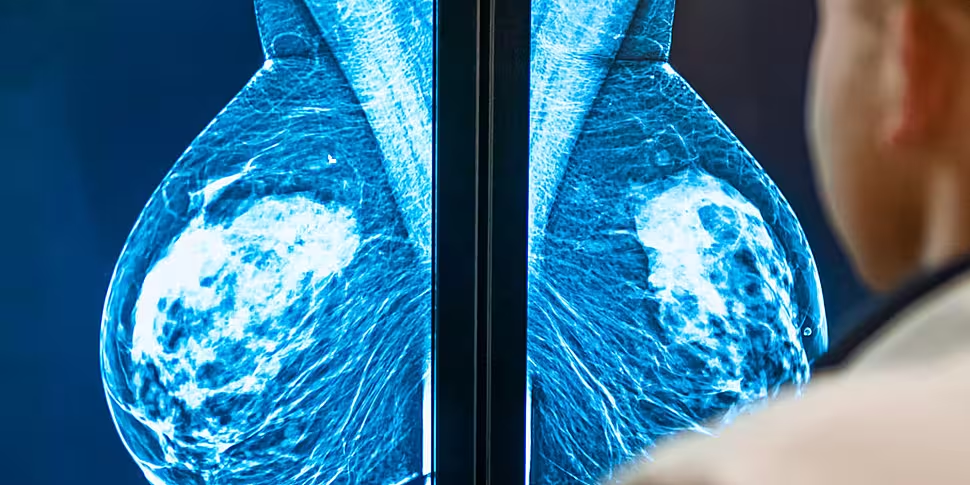Death rates seen in breast, cervical and colorectal cancers have "fallen significantly" since 1994.
That's according to a new National Cancer Registry (NCRI) report, which examined trends up to 2019.
Survival has also improved for all three cancers - with the biggest improvements seen in age-groups targeted by the national screening programmes.
All three cancers have population-based screening programmes in Ireland.
The report found that all three show favourable trends in incidence, stage, survival and/or mortality - consistent with improvements in early detection and outcomes.
It also said there is "clear evidence for additional or more recent benefits of screening".
 A woman having a mammography scan at a hospital. Picture by: Daria Artemenko / Alamy Stock Photo
A woman having a mammography scan at a hospital. Picture by: Daria Artemenko / Alamy Stock PhotoAlmost one-third of cervical cancer cases, and one-quarter of female breast cancer cases, diagnosed during 2017 to 2019 were detected as a result of screening.
A smaller proportion of colorectal cancers were screen detected.
The report said the introduction of a screening programme "would be expected to decrease incidence in cervical and colorectal cancers, but not breast cancer.
"The incidence trends seen in our report are consistent with this."
While screen-detected cancer cases were, on average, detected at a substantially earlier stage than other cases diagnosed at the same ages.
Survival rates
Age-standardised five-year net survival from breast cancer has increased from 72% for female patients diagnosed from 1994 to 1998 to 88% for those diagnosed from 2014-2018.
And five-year survival from cervical cancer has increased from 57% to 65%.
Similar figures were seen in colorectal cancer, with the five-year survival rate increasing from 50% to 66%.
NCRI director Professor Deirdre Murray said: "This is the first time that the NCRI has undertaken an in depth analysis on those cancers that have an associated screening programme.
"Internationally, there is clear evidence that programmatic cancer screening improves cancer outcomes and saves lives.
"This report demonstrates that the trends in Ireland are consistent with these international findings which is reassuring for service users, providers and policy makers."
While National Screening Services chief executive Fiona Murphy welcomed the report.
She said: "It is agreed that since the 1990s there has been a collective improvement in better awareness of cancer symptoms, new treatments, improvements in care and changes in underlying risks for cancer which have all had a positive impact on improved survival.
"However, with the publication of this report and the detailed analysis of the various screened populations we can now confidently say that a portion of that improvement is directly attributable to CervicalCheck, BowelScreen and BreastCheck."









